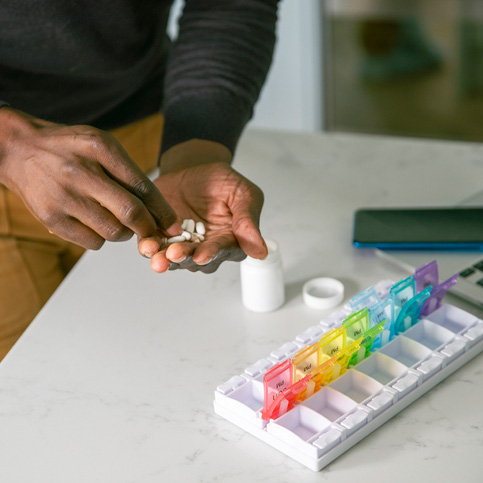Poison Information
- Mississippi Poison Control Center
- About Us
- Medical Toxicology
- Poison Information
- Education Materials
- Resources (external links)
- Contact Us
Main Content
Poison Prevention Tips
| Keep the emergency phone number for the Poison Control Center programmed in your phone: 1-800-222-1222. |
 Outdoors:
Outdoors:
- Before applying pesticides (indoors or outside), remove children and their toys, as well as pets, from the area. Follow label directions for guidance on when it is safe to return.
- If your use of a pesticide is interrupted e.g., a phone call, close the package properly and place the pesticide container out of the reach of children while you are away.
- Teach children that "pesticides are poisons,” and something they should not touch.
- Always store pesticides outside of children’s reach, such as a locked cabinet or garden shed. Child-proof safety latches should be installed on accessible cabinets. Safety latches can be purchased at your local hardware store.
- Always read the label first and follow the directions, including all precautions and restrictions.
- Never eat a wild plant or mushroom.
 Medications:
Medications:
- Make sure all medications, including vitamins, are put up and out of children’s sight and reach – this includes pill planners.
- Never tell children medication “is candy” in order to get them to take it. This can lead to confusion and increases the risk of a harmful exposure.
- Maintain the medication in your hand until consumed; do not leave pills on the counter. These can be forgotten and left easily accessible to children.
- Child-resistant caps are NOT child-proof. Do not rely solely on them to prevent a child from accessing medications.
- Do not use medication bottles as make-shift rattles. This increases the likelihood of future encounters.
- If your child is old enough to climb, simply placing the medication out of reach may not be effective. The poison center recommends investing in a medication lock-box or safety latches.
 Home:
Home:
- Make sure cleaners or detergents are properly stored.
- Never transfer household cleaners or other chemicals to a container that can be confused for a drink, such as water or soda bottles and drinking cups.
- Make sure a clearly marked label is placed on all bottles containing household cleaners or chemicals.
- Make sure laundry and dishwater detergent pods are kept out of sight and reach of children. They are often colorful and can resemble candy.
- Never place rodent or insect baits in areas accessible to children.
- Never mix chemicals, unless specifically directed and instructed by a product label. This applies especially to bleach (sodium hypochlorite) products which are capable of generating chlorine, a poisonous gas.
- Make sure all smoke and carbon monoxide detectors are working properly.
- Always follow all directions, including restrictions and precautions, from the label provided by the manufacturer.


